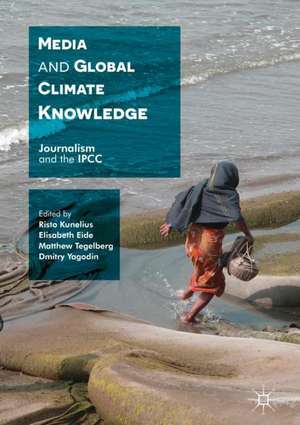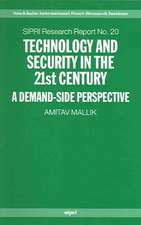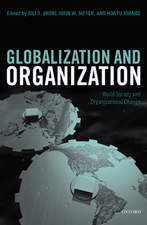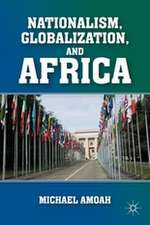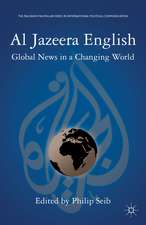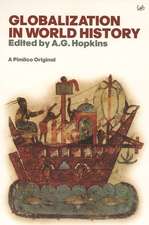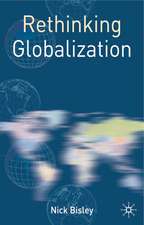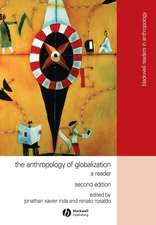Media and Global Climate Knowledge: Journalism and the IPCC
Editat de Risto Kunelius, Elisabeth Eide, Matthew Tegelberg, Dmitry Yagodinen Limba Engleză Hardback – 24 noi 2016
Preț: 587.39 lei
Preț vechi: 691.05 lei
-15% Nou
Puncte Express: 881
Preț estimativ în valută:
112.39€ • 117.67$ • 93.00£
112.39€ • 117.67$ • 93.00£
Carte tipărită la comandă
Livrare economică 07-21 aprilie
Preluare comenzi: 021 569.72.76
Specificații
ISBN-13: 9781137523204
ISBN-10: 1137523204
Pagini: 296
Ilustrații: XX, 309 p. 48 illus.
Dimensiuni: 148 x 210 x 24 mm
Greutate: 0.51 kg
Ediția:1st ed. 2017
Editura: Palgrave Macmillan US
Colecția Palgrave Macmillan
Locul publicării:New York, United States
ISBN-10: 1137523204
Pagini: 296
Ilustrații: XX, 309 p. 48 illus.
Dimensiuni: 148 x 210 x 24 mm
Greutate: 0.51 kg
Ediția:1st ed. 2017
Editura: Palgrave Macmillan US
Colecția Palgrave Macmillan
Locul publicării:New York, United States
Cuprins
The problem: Climate change, politics and the media .- Science, communication and the space of global media attention: Journalism and the IPCC AR5 .- Attention, access and the global space of interpretation: Media dynamics of the IPCC AR5 launch year .- Mediated civic epistemologies? Journalism, domestication and the IPCC AR5 .- Disaster, risk or opportunity? A ten-country comparison of themes in coverage of the IPCC AR5 .- Journalism, climate change, justice and solidarity: Editorializing the IPCC AR5 in “developed countries” .- Emerging economies and BRICS climate policy: The justifying role of media .- Who captures the voice of the climate? Policy networks and the political role of media in Australia, France and Japan .- Following the Tweets: What happened to the IPCC AR5 Synthesis Report on Twitter? .- Climate change and development journalism in the Global South .- Good practices in climate science journalism .- Embryonic transnational professionalism? Key journalists in IPCC AR5 coverage .- Conclusion: From assessments to solutions.
Notă biografică
Risto Kunelius is Professor of Journalism at University of Tampere, Finland.
Elisabeth Eide is Professor of Journalism at University College of Oslo and Akershus, Norway.
Matthew Tegelberg is Assistant Professor in the Department of Social Science at York University, Canada.
Dmitry Yagodin is Academy of Finland Research Fellow at the University of Tampere, Finland.
Textul de pe ultima copertă
This book is a broad and detailed case study of how journalists in more than 20 countries worldwide covered the Intergovernmental Panel on Climate Change (IPCC) Fifth Assessment (AR5) reports on the state of scientific knowledge relevant to climate change. Journalism, it demonstrates, is a key element in the transnational communication infrastructure of climate politics. It examines variations of coverage in different countries and locations all over the world. It looks at how IPCC scientists review the role of media, reflects on how media relate to decision-making structures and cultures, analyzes how key journalists reflect on the challenges of covering climate change, and shows how the message of IPCC was distributed in the global networks of social media.
Caracteristici
Provides a compelling case study of the media coverage of a milestone in the policy and science of climate change, the release of the Intergovernmental Panel on Climate Change (IPCC) Fifth Assessment (AR5) report Analyzes not only newspaper coverage, but also policy networks, visuals, journalist surveys, and audience reactions Extends its geographic and cultural approach to cover more than 22 countries and several angles of analysis
